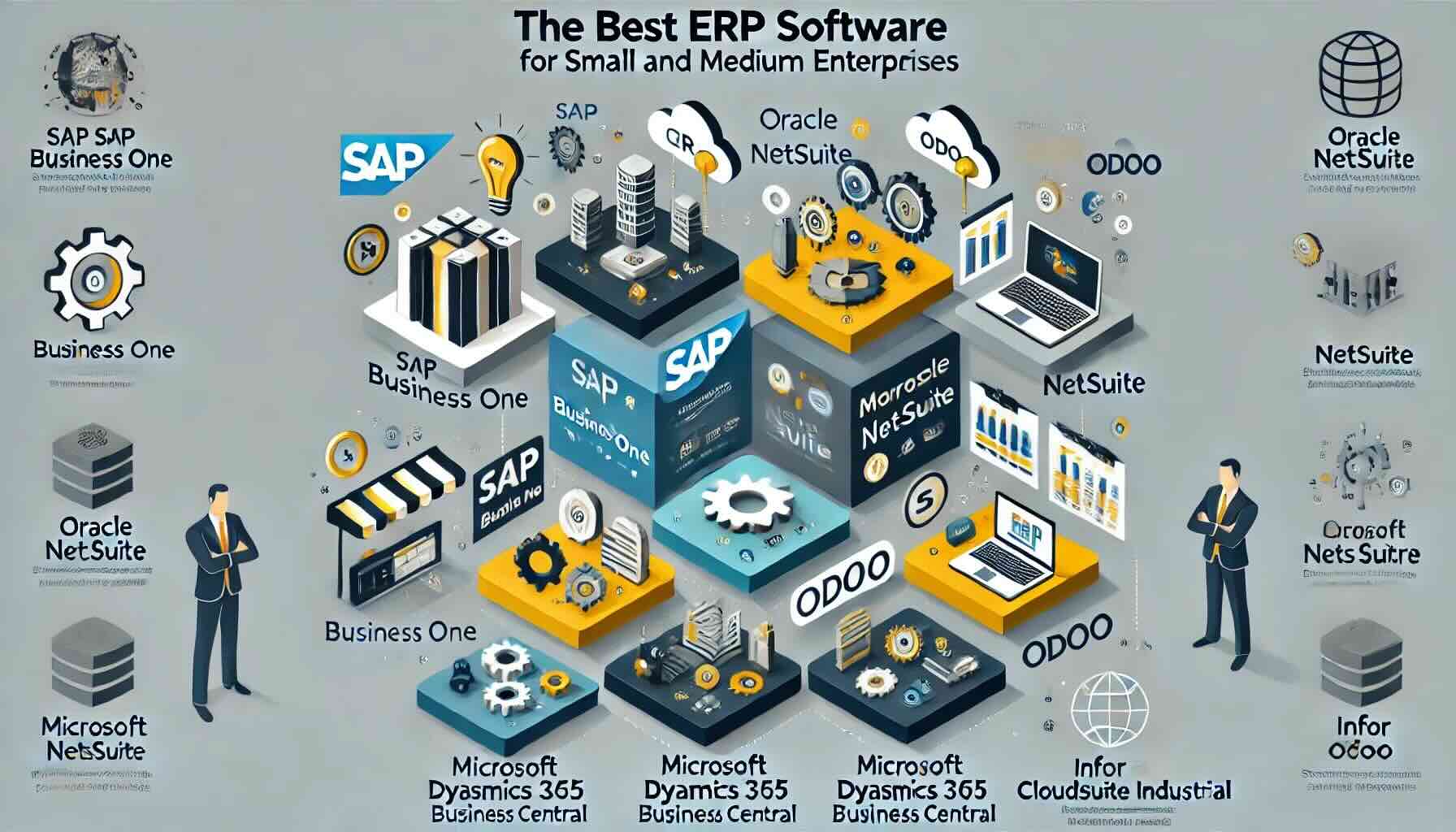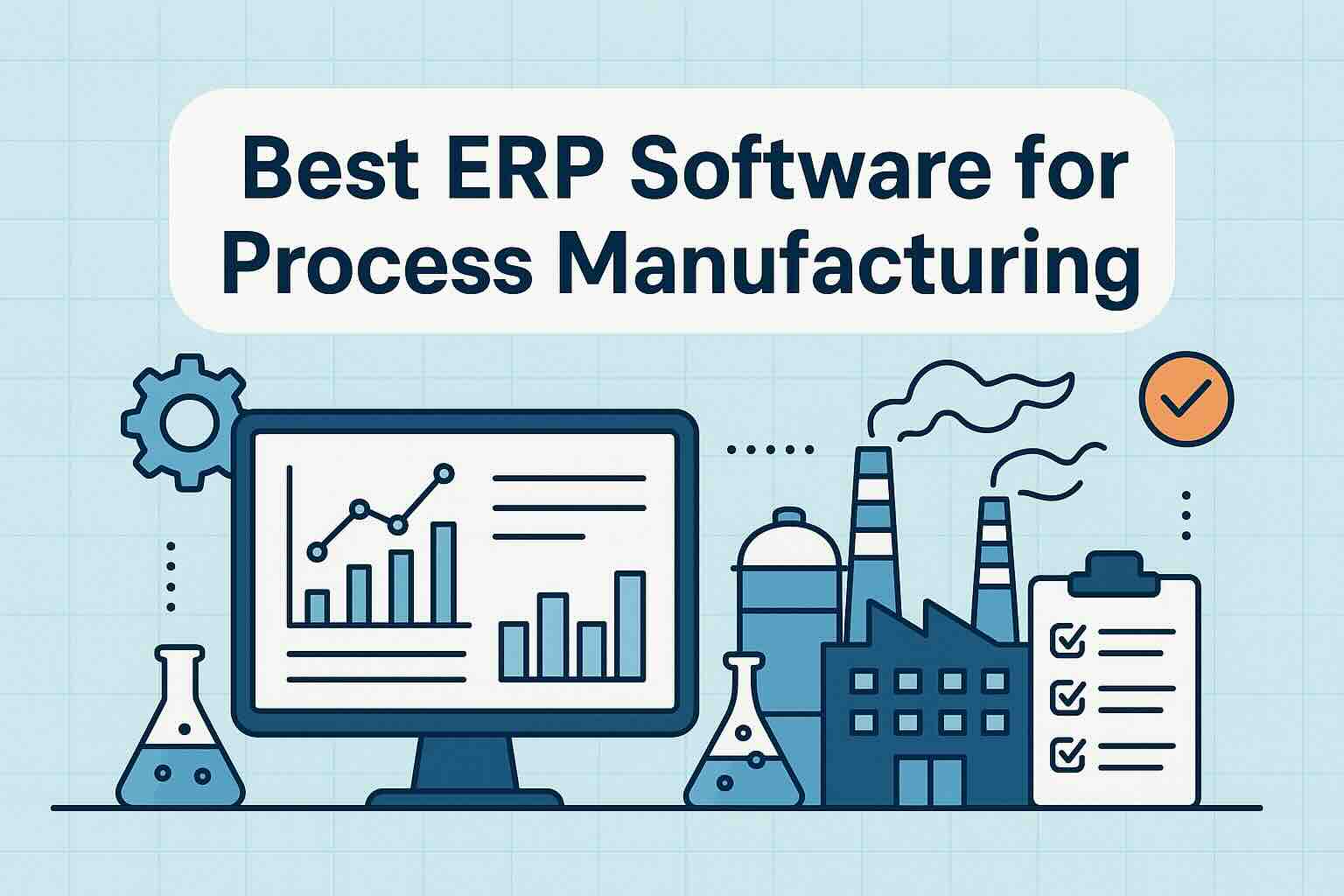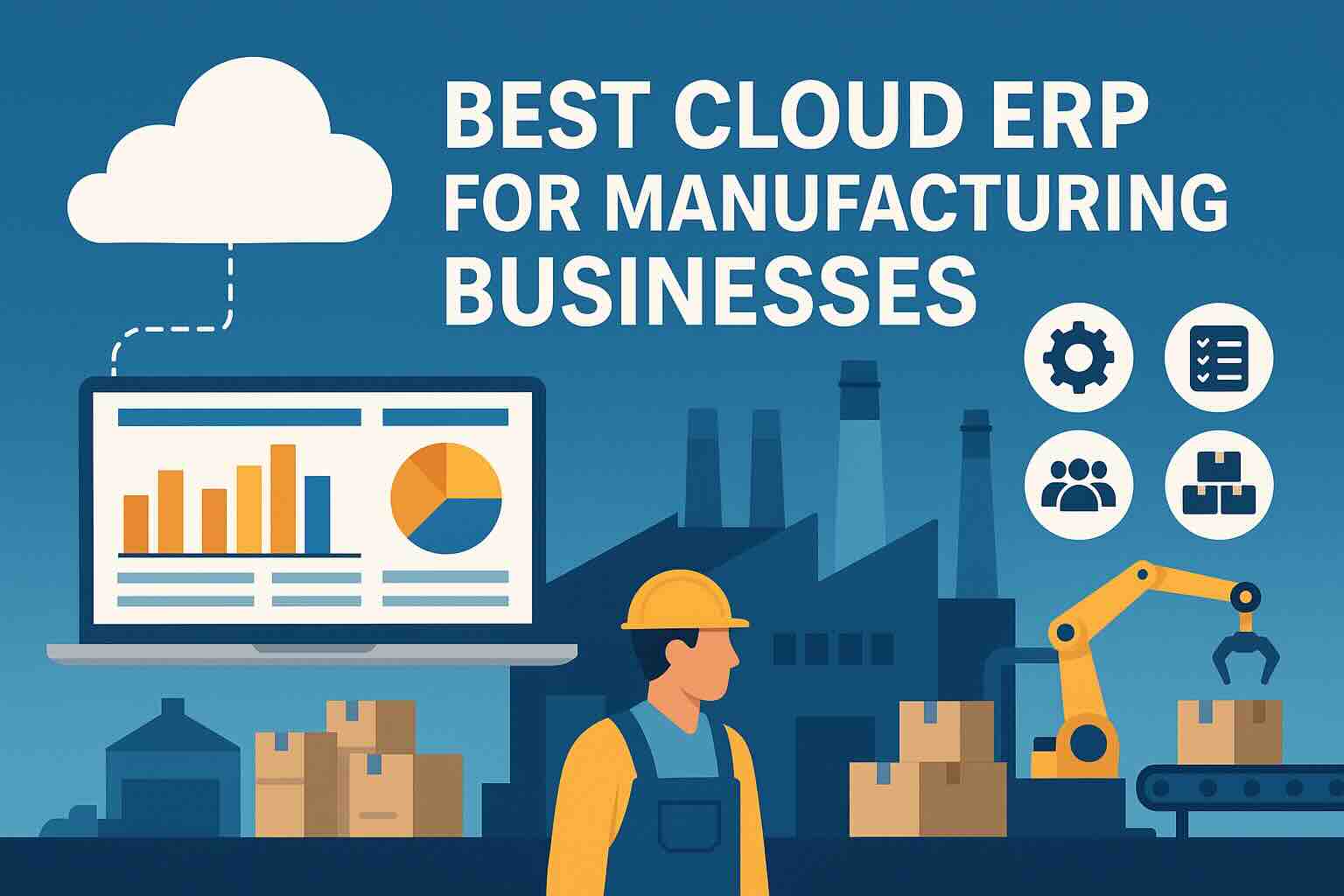Compare ERP for Healthcare Businesses

Patient care in the rapidly evolving and complicated healthcare industry would be impossible without a well thought-out integration of top-notch technology with medical expertise. With all challenges health care businesses face – from complex operations to regulatory compliance to sensitive and confidential patient data, it has become imperative for healthcare organizations to actively embrace an Enterprise Resource Planning system. ERP systems are not just a piece of technology that shows up on the radar if a healthcare business wants to upgrade its existing IT infrastructure. ERP systems can revolutionise how healthcare services are delivered and facilitated – from patient workflows, medication routes and procedures to financial systems, HR, and healthcare supply chain management.
In this comprehensive guide to compare ERP for healthcare, we focus on the functionalities, adaptabilities and propositions of various ERP solutions from top ERP providers, and how ERP systems can transform healthcare management into a fast, focused and data-driven practice. This journey of comparisons will provide critical insight into the variety of needs of healthcare providers and find the best possible technological solutions, ultimately paving the road towards higher quality of patient care and operational efficiency in this important sector.
SAP S/4HANA: A Powerhouse in Data Management and Analytics
SAP S/4HANA is one such system and it again uses real-time databases to provide near-instant insight and analytics on the data that it manages. It performs well on the processing and analytical tasks required by healthcare institutions to track patients, identify therapies and manage large scales of chromosomes. Given the amount of data that needs to be managed in healthcare, and the need for live, social information, systems such as SAP HDENA have a strong set of values that they are willing to sell when it comes to the (large sums of) money required to implement and maintain these systems. For large hospitals, these are valid reasons to pursue the implementation of such systems. However, there are many smaller healthcare facilities without the appropriate infrastructure (datacentre, networking) and people (SAP experts) to run these systems, so some real effort would be required.
Click this link to find out more about SAP S/4HANA for healthcare.
Oracle Cloud ERP: Versatility in a Cloud-Based Environment
Another well-known feature of Oracle Cloud is that it is adaptable to a variety of healthcare settings, as its strong ‘off-the-shelf’ cloud-based features make it a good fit for different scenarios. Customisation helps health organisations to adapt the core system architecture and functionality to fit the unique organisational structure, workflows and staffing needs of individual institutions. This adaptability allows the system to conform to a specific organisation, which addresses the issue of data access and information sharing between different entities. However, the adaptability also has some drawbacks, such as higher costs and complexity of implementation, which may act as barriers to some healthcare providers with limited resources.
Click this link to find out more about Oracle Cloud ERP for healthcare.
Microsoft Dynamics 365: Blending ERP with CRM for Enhanced Patient Engagement
What’s special about Microsoft Dynamics 365 is the juxtaposition of ERP and Customer Relationship Management (CRM), with an emphasis on ‘patient engagement’ and ‘relationship management’. These strong CRM features might help align healthcare models that are moving towards a more patient-centric, interventional approach. By some measures, this may be the gold-standard of full-stack health administration. For enterprise healthcare that’s a service-centric model, Dynamics 365 can reduce friction for efficiently managing and tracking patients. However, for many medical practices that are highly operations-intensive, these CRM-centric features might not be the proper fit.
Click this link to find out more about Microsoft Dynamics for healthcare.
Workday: Human-Centric ERP for Effective Workforce Management
Workday, for instance, is built for the application of workforce management, or the efficient coordination of healthcare personnel – an omnipresent element and critical concern in healthcare enterprise management. Because of Workday’s streamlined, decision-system-heavy, human-capital management niche, it can be used to track and maintain the different types of personnel in a hospital system. However, if a manager is also concerned with supply chain management, or clinical data integration, Workday is unlikely to be a one-size-fits-all solution because it’s not an ERP system that was designed with those areas in mind.
Click this link to find out more about Workday for healthcare.
Unit4: Agility and Flexibility for Evolving Healthcare Needs
Unit4 is designed for the service economy and therefore is an attractive possibility for organisations that need an agile and adaptable system. For healthcare organisations that iterate their practices and patient needs frequently, Unit4 is a good fit. If an organisation is looking for a system with deep financial management features or extensive logistical capabilities – for instance, a distributor of pharmaceuticals – it might not be as inclusive.
Click this link to find out more about Unit4 for healthcare.
Conclusion: A Tailored Approach to Compare ERP for Healthcare
Unfortunately, it’s impossible to rank these ERP solutions based on a single metric that finally settles the debate that healthcare providers face when comparing the systems. So what’s the best ERP system for the healthcare industry? The ‘best’ answer, unfortunately, is ‘it depends’. In this article, I’ve attempted to capture a neutral overview of the four key ERP systems for healthcare. Each implementation would, of course, have its own characteristics, making it even harder to rank one system versus another. Healthcare providers should weigh the benefits of each system, based on their unique needs; do they value the large data processing capabilities of SAP S/4HANA, the cloud-based flexibility of Oracle Cloud, the focus on patient relationships with Microsoft Dynamics 365, or the flexibility of Workday, which is a good fit for specialised healthcare providers? Whether healthcare providers grow over time, an ERP system that ultimately does not fulfil their needs will eventually become a big burden. Selecting the right ERP solution for healthcare contributions to patient care as much as company performance, so the selection task should be treated as a high-stakes initiative from the start.
To compare these ERP solutions and many more you can use our new AI-powered Compare ERP tool. It’s free to use and you get a guaranteed discount on your first year’s licence fees with a referral from Compare ERP.









